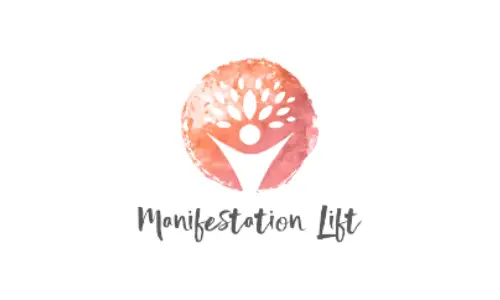Have you ever heard of mindfulness and how it can benefit your life? Before diving into the concept, let me ask you: have you ever felt distracted, with your mind wandering and disconnected, not fully present? Getting lost in random thoughts during a work meeting, a class, or even a family or social gathering is more common than you might think.
This disconnection can stem from various factors, such as daily stress, exhaustion, or information overload. We live in such a fast-paced world where we’re constantly revisiting the past, planning for the future, and attempting to balance the present, often forgetting to focus on what we’re doing in the here and now.
How Can Disconnection from the Present Affect Our Lives?
When we fail to focus on the present moment, with our minds stuck in past events or anxious about the future, our ability to act efficiently and mindfully is significantly compromised. This impacts not only practical day-to-day tasks, such as work and studies, but also our interpersonal relationships — whether with colleagues, friends, family, or romantic partners.
The good news is that practicing mindfulness can help you overcome these challenges. Shall we explore how?
What Is Mindfulness?
Let’s start by understanding what mindfulness truly is: Mindfulness, or full attention, is the practice of completely focusing on the present moment. This meditative technique is not tied to any religion and was developed in the United States in the 1970s through a program led by Dr. Jon Kabat-Zinn, a professor at the University of Massachusetts Medical School.
In 1979, Dr. Kabat-Zinn established the Stress Reduction Clinic, marking a turning point for mindfulness. His work expanded its application beyond spiritual practices, positioning it as a scientifically supported technique that contributes to fields such as mental health, personal development, and education.
In general, meditation refers to any practice aimed at promoting an individual’s well-being and calming the mind. Mindfulness, as a meditative practice, focuses entirely on the present moment — on the activity being performed, as well as on current sensations and thoughts.
Basic Foundations of Mindfulness
Some people mistakenly believe that practicing mindfulness means simply “emptying the mind” or requiring long periods of meditation. However, mindfulness is essentially the ability to be fully aware and focused on what is happening in the present moment — within yourself, in your emotions and thoughts, as well as in your physical activity or the environment around you. The goal is not to avoid thoughts or clear the mind but to observe them attentively and without judgment.
At its core, mindfulness is:
Being present, with focus and full attention on the moment you are experiencing, with intention and without judgment.
Regardless of personal beliefs, mindfulness is an accessible and beneficial practice for everyone. It does not require long periods of time or a specific environment.
Practicing mindfulness helps us step out of “autopilot,” enhances our mental clarity, and deepens our awareness of the people and events around us.
Benefits of Mindfulness
The benefits of mindfulness span various aspects, both spiritual and scientific. While it’s always advisable to approach such claims with care, scientific research has highlighted several advantages of mindfulness, such as:
- Reduction of stress and anxiety
- Improvement in depressive symptoms
- Enhanced focus and mental clarity
- Better emotional regulation
- Increased cognitive flexibility
- Greater productivity
- Improved decision-making
- Reduction in impulsive or reactive behaviors
- Better sleep quality
- Improved communication and active listening
- Greater empathy
- Reduced interpersonal conflicts, among others
Beyond these benefits, mindfulness also helps us build a better relationship with the events and experiences in our daily lives. For instance, in challenging situations that could easily lead to conflict, practicing mindfulness allows us to respond more consciously, avoiding automatic, aggressive, or impulsive reactions.
By cultivating mindfulness, we expand our self-awareness and our perception of the environment around us. This practice fosters a general sense of well-being and strengthens interpersonal relationships, making it a valuable tool for personal growth and harmony.
How to Practice Mindfulness in Everyday Life
The best part about mindfulness is that practicing it doesn’t require major changes to your routine or long meditation sessions. You can easily incorporate mindfulness into your daily activities. Let’s look at a few examples:
In Traffic
- If you find yourself stuck in a traffic jam, instead of getting irritated with the wait, focus on the sensations of your feet on the pedals, your hands on the steering wheel, the sounds around you, and even your breathing. Stay in the moment with full attention.
- In normal traffic conditions, focus on the road ahead. Notice the other cars, traffic signals, and changes in the flow. Avoid getting lost in thoughts about the past or future, such as “What will I do when I arrive?” or “How will tomorrow’s meeting go?” Instead, keep your attention on the present, without judgment.
At Work
- Imagine you’re handling a complex task at work or school and start feeling overwhelmed and losing focus. Instead of “forcing” your mind and body to keep going, take a moment for mindful attention:
- Pause the task. Close your eyes if possible or simply soften your gaze.
- Focus on your breathing, observing its natural rhythm without trying to change it.
- Return to your task and ask yourself: “What do I need to do right now to move forward?”
- Focus on the next step without worrying about the entire list of pending tasks.
- If you’re in one of those endless meetings where your mind starts to wander, practice active listening. Focus on the words being spoken, the speaker’s intentions, and the body language of the participants.
During a Conversation with Someone Important to You
When talking to someone, practice mindfulness by focusing on their gestures, tone of voice, and words, instead of planning what you’re going to say next. Mindful attention makes the conversation more meaningful and engaging while strengthening the connection between you both.
In Any Mindful Practice
Focusing on your breath is one of the simplest ways to anchor your attention and prevent your mind from wandering. This helps you stay fully engaged in the present moment.
Mindfulness for Beginners: Simples Steps to Get Started
If you’re unsure how to begin practicing mindfulness, follow these simple steps:
- Set aside a moment in your day: Start with 2 to 5 minutes, such as right after waking up or before going to bed. Dedicate this time to focus on the present moment, your breathing, and your physical and emotional sensations.
- Focus on your breathing: Choose a comfortable position and pay attention to the natural rhythm of your breath and the physical sensations it creates. If your mind starts to wander, gently bring your attention back to your breathing, without judgment.
- Practice mindfulness in daily activities: You can incorporate mindfulness into any part of your day. For example:
- During a shower: Pay attention to the temperature of the water and how it feels on your body.
- While walking: Notice the contact of your feet with the ground, the movement of your ankles, and the rhythm of your steps.
- While eating: Focus on the flavors and textures of each bite.
The most important thing when starting your mindfulness practice is persistence and, above all, patience with yourself. Be kind to yourself. It’s normal to feel like you’re not “doing it right,” but remember:
Mindfulness is a practice, not a goal!
Final Thoughts
Why not give it a try right now? Take a minute to observe your breathing. Pay full attention to the sensations your surroundings bring to you.
Mindfulness doesn’t need to be perfect to benefit your life — it simply needs to be practiced. Wishing you a great start on this journey!








